#TPP Critical
Explore tagged Tumblr posts
Text
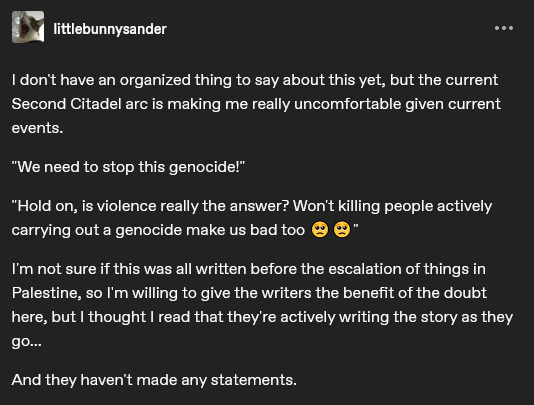
Screenshotting my original post so my addition shows up in the tags.
Two-siding a genocide in your ongoing podcast while an actual real world genocide is going on is WILD.
The humans have been confirmed to be colonizers of land originally inhabited by monsters. They have carried out multiple genocides and forced the monsters out of their homes and into cities on the fringes of the world. Then more human invaders show up to destroy those cities (also the monster cultural centers).
We have confirmation that the city they hit first has been leveled entirely now. The city that Olala was seeking because it contained so much information and history about monster kind.
We've also got political leaders refusing to get involved unless the bombing comes to them, and the monsters being treated as primitive and ineffective against the advanced tech of the off-world humans. This is a really uncomfortable if unintentionally a parallel and actually awful if it is intentional. Best case scenario, it's trying to make a connection between fictional monsters and real life people in a way that's both othering and pretty racist. Worst case, the writers actually believe this is a two side issue and that any attempt to stop Israel is "just as bad" as an ongoing genocide.
Does anyone know if anyone has made any statements? I'm not expecting every creative to do so, but when your work is hitting this close to real world situations, it might be necessary.
#The Penumbra Podcast#TPP#TPP Critical#The Penumbra Podcast Critical#The Second Citadel critical#The Second Citadel#tw genocide#genocide mention#tw genocide mention#Again I'll say that Eskew Productions made a statement when their show skewed close to real world happenings#it's wild that Penumbra hasn't when what they're doing is much closer#If anyone has anything more coherent to add please do#I might revisit this again with transcripts later#This season has already been a slog and now just... woof
35 notes
·
View notes
Text
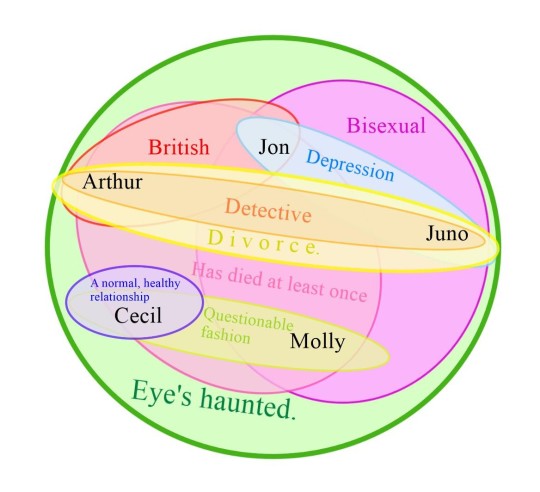
Behold: a monster
#critical role#the mangus archives#the penumbra podcast#malevolent#malevolent podcast#tma#cr#tpp#welcome to night vale#wtnv#jonathan sims#jon sims#arthur lester#mollymauk tealeaf#cecil palmer#juno steel#podcasts#podcast shit
2K notes
·
View notes
Text
thinking a lot about how the outer rim planets Feel Different. something about nureyev, constantly traveling, bouncing from one planet to the next.. it has to take time to adjust to. completely different gravity, completely different Materials that make up everything. it has to be like the feeling of being in a different climate times a Billion. the way the world feels and moves-or noticeably Doesn't Move-around you. having to adjust to it every time. having to learn how to exist over and over again. i really like that.
#lemon speaks#i just think.he should noticeably carry himself much differently depending on where he is. ok.#existing on a solar planet is a practiced motion#a shape he's filled and grown into over time because he Needed To.#but in the outer rim?? i like to think that there's a bit of his younger self still visible. yknow .#quite Literally more fluid in his movements. more relaxed. it feels like home. maybe not in a good way.#maybe in a way that makes him feel more. Childish. and vulnerable. if you want to Really get into it.#but I think there should be A Difference between the two. and critically Not one of lack of accustomedness in either case#...anyways its really funny that i wasn't very interested in nureyev at first. this guy's a goldmine actually look at this shit#tpp#peter nureyev#<- because why not. i popped off with this one
33 notes
·
View notes
Text
vanilla scent comes from orchids.
juno describes nureyev's cologne as smelling of spices from a far off planet, and something he couldn't place, which was later revealed to be the orchids.
vanilla and spices.
conclusion: nureyev smells like Christmas cookie Yankee candles.
#not open to criticism actually. im living my truth#tpp#the penumbra podcast#juno steel#junoverse#peter nureyev#jupeter#swear to god tpp merch team yall better make a nureyev scented candle or official perfume like tma did PLEASE PLEASE PLEASE
232 notes
·
View notes
Text
While the production unfolds we have an important question for all of you narrative podcast weirdos.
We really need the statistics on this, thank you🙏💓
#road to moscow#rtm#rtm podcast#valerian inc.#valery worlds#fictional podcast#narrative podcast#the magnus pod#tmagp#tma#tma podcast#camp here and there#chnt#smile grove#tpp#the penumbra podcast#hello from the hallowoods#hfth#critical role#welcome to night vale#wtnv#alice isn't dead#the orbiting human circus#death by dying#stellar firma#rusty quill#two princes#woe.begone#wolf 359#dungeons and daddies
91 notes
·
View notes
Text
RoseWinterborn Fic List
This feels like begging for attention and I hate it but I've started dabbling in fanfiction again so it doesn't seem like a *terrible* idea to link some of my work in case anyone is interested in reading it:
The Penumbra Podcast and The Magnus Archives:
Nights in Time Series (https://archiveofourown.org/series/1496780)
A pair of oneshots exploring the hotel scene from the season one finale (sad) and a scene ambiguously set in season three where they find a happier ending. 2.6k, explicit.
Back to the Hedgerows (https://archiveofourown.org/works/20658545/chapters/49059989)
Juno and Peter gradually work out their differences, with a bit of meddling from one hacker extraordinaire. Set ambiguously in season three, can be read between the Nights in Time oneshots if you like. 12k, teen.
Penumbra/Magnus Crossover Series (https://archiveofourown.org/series/1520216)
My magnum opus, my baby, my beloved. First Peter Nureyev and Peter Lukas trade places and cause problems, then Jonathan Sims and Juno Steel get swapped to make everything worse (then better). 44k, teen.
Critical Role (Mighty Nein)
Bury Me Facedown (https://archiveofourown.org/works/27160519)
A few hundred words of Molly-losing-Yasha-to-Obann angst. <1k, teen.
The Tear in My Heart, I'm Alive (https://archiveofourown.org/works/27427402)
Au where Molly is alive when they get their gemstone tattoos in Nicodranas. 2k, gen.
Cadence (https://archiveofourown.org/works/31369616)
A brief character study of Mollymauk. <1k, gen.
Soulbound (https://archiveofourown.org/works/31370417)
Short Mighty Nein soulmates au. <1k, gen.
Arcane
Firm Warning, Soft Goodbye (https://archiveofourown.org/works/61782691)
Just another s1 Viktor/s2 Jayce fic (my beloved). 1.1k, gen.
What Really Matters, I Keep Breaking (https://archiveofourown.org/works/62220274)
Jayce takes a moment to grieve in the aftermath of the 2x8 fight scene. 1.1k, gen.
If you see my Supernatural oc fics in there no you don't (i mean. unless you do. in which case have fun i guess), and I'm dearly sorry to anyone still waiting for a conclusion to Tender Concessions. Maybe it'll get one someday but uh. I make no promises.
#arcane#critical role#the penumbra podcast#the magnus archives#tpp#tma#e's writing#I leave this post to its fate i guess
7 notes
·
View notes
Text





some initial notes on the marching ants + hobbit for sizing
#ocs#IMAGE#the critics will call it tpp with high school stoner dyke-fag politics#but they're something more to me
7 notes
·
View notes
Note
what is your opinion on pathetic podcast men in general? (Also what are your favorite characters from all the pods you've watched)
Hello!!
Generally the more wet cat a podcast man is, the more likely I’m going to love him. Jon and Arthur, my absolute beloveds. They may not be my top favs but damn they’re up there.
As for my favorites in each podcast!
WtNV: Kevin :]
TMA: Elias (yeah yeah sue me (also secretly Barnabas Bennett))
TMAGP: I’m convinced that Augustus is Jonah but for the sake of the new characters, I do vibe with Sam and Colin
TPP: Jet or Damien depending on which story
Malevolent: Oh this is tough… Probably The Butcher. (Yes, I did sob aggressively during Part 40. Devastated.)
Dungeons and Daddies: Henry Oak
Critical Role: Percy and Fresh Cut Grass (haven’t listened to Campaign 2 ;^;)
[Keep editing because I forget the amount of podcasts I listen to]
[[Does The Bible in a Year count???]]
#why…why are they mostly villains lmao#Kayne is a close second#Barnabas is more fanon interpretation as well but I’ve fallen in love with this lil man#same with Jonathan Fanshawe#ocelli asks#tma#malevolent#wtnv#tpp#critical role#dungeons and daddies
15 notes
·
View notes
Text
Every once in a while, my thought process while listening to Penumbra goes roughly like this:
Concierge: “And welcome, Traveller, to the Pen-”
Me: “Traveller?? Oh, oh! Artagan! We are the Traveler here, yes, yes! We are Artagan!
7 notes
·
View notes
Text
RoseWinterborn Fic List
I've started dabbling in fanfiction again so it doesn't seem like a *terrible* idea to link some of my work in case anyone is interested in reading it (copied from my main so i can add tags because I'm Very Smart):
The Penumbra Podcast and The Magnus Archives:
Nights in Time Series (https://archiveofourown.org/series/1496780)
A pair of oneshots exploring the hotel scene from the season one finale (sad) and a scene ambiguously set in season three where they find a happier ending. 2.6k, explicit.
Back to the Hedgerows (https://archiveofourown.org/works/20658545/chapters/49059989)
Juno and Peter gradually work out their differences, with a bit of meddling from one hacker extraordinaire. Set ambiguously in season three, can be read between the Nights in Time oneshots if you like. 12k, teen.
Penumbra/Magnus Crossover Series (https://archiveofourown.org/series/1520216)
My magnum opus, my baby, my beloved. First Peter Nureyev and Peter Lukas trade places and cause problems, then Jonathan Sims and Juno Steel get swapped to make everything worse (then better). 44k, teen.
Critical Role (Mighty Nein):
Bury Me Facedown (https://archiveofourown.org/works/27160519)
A few hundred words of Molly-losing-Yasha-to-Obann angst. <1k, teen.
The Tear in My Heart, I'm Alive (https://archiveofourown.org/works/27427402)
Au where Molly is alive when they get their gemstone tattoos in Nicodranas. 2k, gen.
Cadence (https://archiveofourown.org/works/31369616)
A (very) brief character study of Mollymauk. <1k, gen.
Soulbound (https://archiveofourown.org/works/31370417)
Short Mighty Nein soulmates au. <1k, gen.
Arcane:
Firm Warning, Soft Goodbye (https://archiveofourown.org/works/61782691)
Just another s1 Viktor/s2 Jayce fic (my beloved). 1.1k, gen.
What Really Matters, I Keep Breaking (https://archiveofourown.org/works/62220274)
Jayce takes a moment to grieve in the aftermath of the 2x8 fight scene. 1.1k, gen.
Aftermath (https://archiveofourown.org/works/62589481)
Jayce and Viktor wake up in the aftermath of the battle, and find a moment to breathe before their next fight begins. (20k, gen. Ongoing)
If you see my Supernatural oc fics in there no you don't (i mean. unless you do. in which case have fun i guess), and I'm dearly sorry to anyone still waiting for a conclusion to Tender Concessions. Maybe it'll get one someday but uh. I make no promises.
1 note
·
View note
Text
Merry Christmas?..
Today, on 25 December, the Russian occupiers launched another missile attack on Ukraine - the enemy again targeted critical infrastructure facilities: TPPs, CHPs, and power grids.
According to the command of the Ukrainian Air Force, 184 enemy air targets were recorded:
2 KN-23 ballistic missiles;
10 S-300/S-400 anti-aircraft guided missiles;
12 cruise Kalibr Missiles ;
50 X-101/X-55 cruise missiles from Tu-95MS strategic bombers;
4 X-59/X-69 guided missiles from tactical aircraft;
106 Shahed strike UAVs
The Ukrainian Air Defence Forces shot down 113 targets.
Kharkiv
The Russians launched 12 missiles at the city and targeted critical infrastructure: boiler houses, CHP plant, and electricity facilities.
So far, six people have been reported injured: five men and one woman.
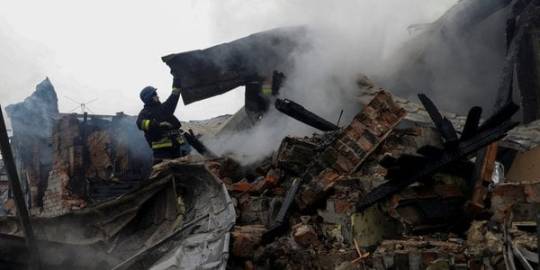
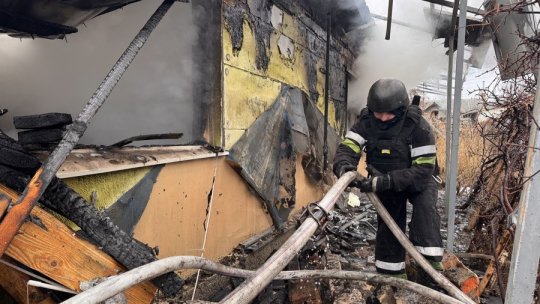

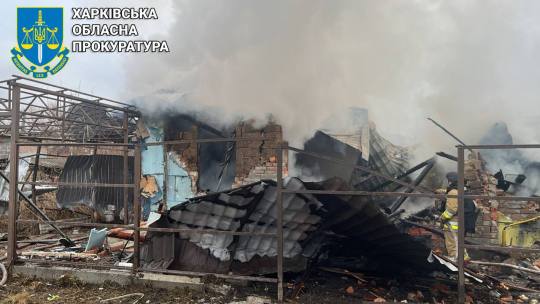
Ivano-Frankivsk
The enemy strike left part of the Carpathian region without power supply - residents of Kalush, Burshtyn and Ivano-Frankivsk were without electricity.
Dnipro
The Ukrainian Air Defense Forces shot down 42 enemy missiles over the Dnipro region.
The missile attack damaged infrastructure in Dnipro. Unfortunately, a TPP worker, 51-year-old Dmitry Petlenko, was killed. His body was found under the rubble.
The windows of a nine-story building were also smashed, and a private house was damaged. An outbuilding caught fire, and rescuers extinguished the fire.
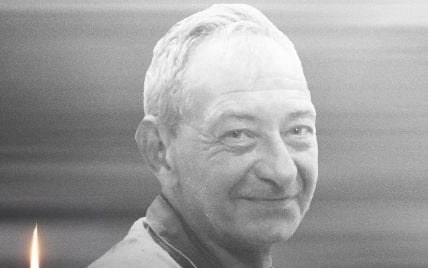
Kirovohrad region
Critical infrastructure in the Kirovohrad region was also targeted by the Russians.
The falling debris caused a fire in a warehouse.
As a result of the strike, the pumping stations of the Dnipro-Kirovohrad water pipeline were de-energized.
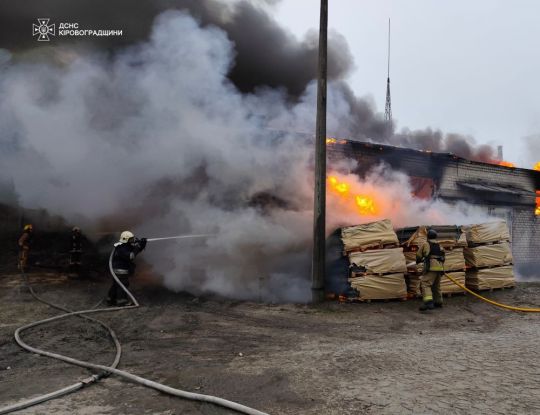
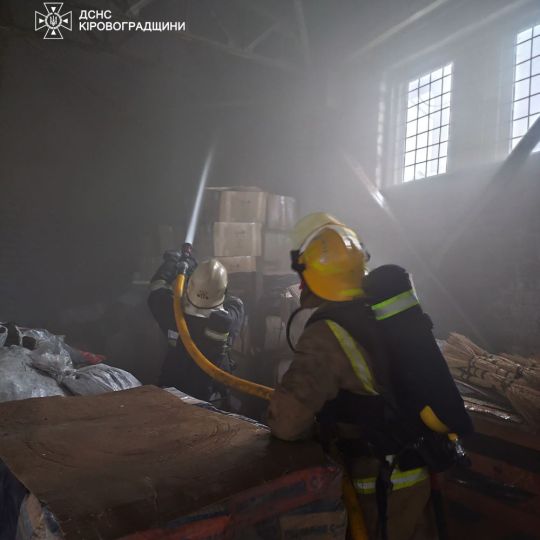
Vinnytsia region
At night, the enemy attacked the energy infrastructure. There is damage. As of the morning, thanks to the coordinated work of power engineers, all consumers are supplied with electricity.
Kyiv region
The air alert in the Kyiv region lasted all night. Air defense forces were working in the region. Some enemy targets were shot down. Fortunately, no people were hurt.
As a result of the falling debris of downed enemy targets in two districts of the region, 12 trucks, a cafe and three private houses were damaged.
Kryvyi Rih
An enemy missile strike killed one person and injured 17 others, including two children, the State Emergency Service of Ukraine reports.
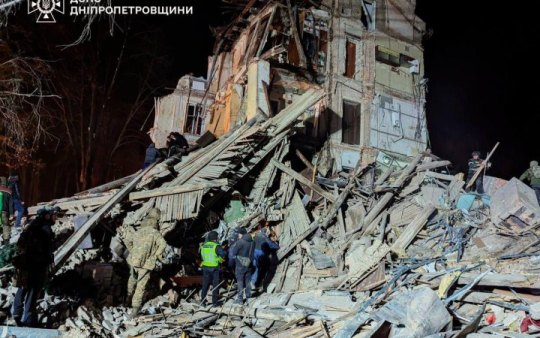
"This is definitely not a global war"
Meanwhile, Poland again sent its military aircraft into the sky. As noted by the Operational Command of the Polish Armed Forces, this step was taken “because of the Russian air attack, which can hit objects located in the West of Ukraine, among other things.”
In addition, one of the Russian missiles entered Ukraine through the airspace of Moldova.
At 07:24, the Ukrainian Air Force reported a cruise missile flying toward Chernivtsi from Moldova. At the same time, monitoring Telegram channels claim that the Russian missile flew about 140 kilometers through the territories of Moldova and Romania.
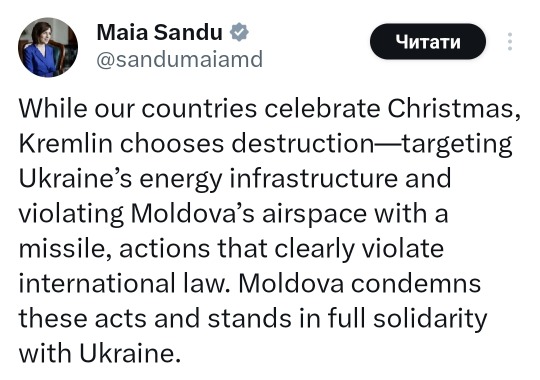
Не забуваймо, завдяки кому ми зустрічаємо цьогоріч Різдво.
Слава Україні!
Героям слава!
Слава нації!
Смерть ворогам!
89 notes
·
View notes
Text
So yeah about what I was saying in the tags to @metalgearstranding's post about Ocelot's parentage here. I finished the TPP side quest involving Paz and I have Thoughts on the topic of character development being pushed to the periphery of the Metal Gear games, which also include BIG BIG SPOILERS about the endgame of MGSV so if you've managed to get into metal gear unspoiled about that and wish to remain so, don't read beyond the cut. And if you decide to read, content warning for discussion of sexual violence.

So I've basically finished the main storyline of TPP -- reached the "Truth" mission, lost Quiet (I also got her back btw. Yes you can. Love wins) and now I'm two repeat missions away from finishing the main list, while I still have a few side ops to unlock. One of the side op series I finished first is the "find the wandering Mother Base soldiers" one, where you have to capture lost soldiers from the old Mother Base and collect memento photos in the process. The "mementos" are scenes you can trace back to Paz's diaries in Peace Walker, and I thought they were some side material whose purpose was to nod at the players who actually played PW without making it integral to the game. As a matter of fact, a lot of people skipped on Peace Walker, being a portable game and all -- even my brother who is a lifelong fan of the series and introduced me to it never played it, which I like to hold over his head because I am now Doing Metal Gear Better.
Then I recently ended up on this article and found out there was a whole side plot involving those mementos and the unexpected reappearance of Paz at Mother Base. If you played Ground Zeroes, you'd know Paz died a gruesome, gross death, with two bombs planted into her body by Skull Face -- one that had to be surgically removed from her abdomen without anaesthesia and the other in, well, her vagina, that exploded when she threw herself off the flying chopper Big Boss was carrying her on, causing or at least exacerbating the incident where BB and the Medic ended up in their nine year coma.
So in TPP there's this door on the third floor at the main Medical Platform. You can open it and find a room with Paz in it - alive, but with a V-shaped scar on her abdomen and her mind stuck in 1974. Ocelot and Miller will explain that the Medic was able to extract the second bomb at the last minute(*) and save her, never mind that she looks like she barely aged.
(*)I reiterate: from her vagina. Not sure how I feel about how sexual violence is used in this game, because on the one hand it is true that it disproportionately affects women POW and it would probably be disingenuous to not address it altogether, but at the same time these aren't the games most suited to handle this topic because they tend to be very, uh, adolescent when it comes to women and their bodies even when the context is rather dramatic. You also see it in the lingering shot on Quiet's breasts during her attempted onscreen rape (then there's also, of course, the implied offscreen ones) and don't get me started on whatever is going on when you defeat the Beauty & Beast unit in MGS4.
This triggers a flashback from Venom, where he basically overwrites the scene as you experienced it in Ground Zeroes with the scene as recounted to him by Kaz and Ocelot, and his point of view shifts between Big Boss and the Medic. Which is honestly pretty clever if you're playing this unspoiled, because if you unlock this early on in the game the point of view shift foreshadows the twist from the "Truth" mission. And if you, like me, play it after, you get to be like "aha!" at it.
The twist being, of course, that Venom isn't Big Boss but rather the Medic, brainwashed into becoming Big Boss' Phantom.
Again, there are hints -- when you start bringing Paz the memento photos, she will comment on them with a nostalgic, sugar coated version of what she said in her Peace Walker diary entries, because if you look at those, her tone is a lot more critical and at times snarky, because Paz was a double agent. Sure, she eventually had a change of heart and 1984 Paz might be reflecting that. But her phrasing, combined with her repating "I'm a student... I'm an angel of peace..." the whole time, points at this being the Medic piecing together a version of Paz that he knew; it's unlikely he got the full intel on her at the time of her rescue in GZ, and what with Ocelot not being there at the time of Peace Walker, it might be he also didn't include it in his mental conditioning at all.
The Paz side plot is possibly the only one that fully engages with Venom as his own character and not as a Big Boss proxy. It's about the Medic's trauma and guilt for not having been able to save Paz, who in his eyes was just an innocent girl. Which was a lie, but isn't at the same time because she certainly didn't deserve what happened to her. The last picture you find is called "Morpho butterfly" and Morpho was the name of Pequod's predecessor as the chopper pilot. It's all about Venom's mind struggling to deal with the loss of his old comrades, not to mention his own identity.
It's also the most effective demonstration you get of his brainwashing, because you see him being unable to trust his own memories, rewriting them in real time.
Paz, of course, isn't real. Venom hallucinated her the whole time. Her words in the audio files are actually his thoughts, which has some interesting repercussions, like was it actually the Medic who witnessed this?

Me finding a way to make this about Kaz aside, what I'm getting at is: this whole subplot is the only one that tackles Venom's situation as a PTSD ridden, brain damaged, brainwashed person head-on. It also highlights his compassionate nature by making his guilt towards Paz be the only thing that resurfaces from his old life.
The mental and neurological issues, the seizures, memory loss are all things that are established with Venom's introduction; when you rescue Kaz, Venom asks him to talk to him and help him remember, but in reality the mission support Kaz gives you is merely about logistics, and in most cutscenes he and Venom talk of the matters at hand, or of Kaz's desire to get back at Skull Face and Cipher. Venom's brain issues don't really factor significantly in the story segments or the gameplay (except for the color blindness that was meant to be a sort of Checkhov's Gun in the unfinished Kingdom of the Flies mission. My Roman Empire). Yeah they couldn't pay Kiefer Sutherland for more than three line readings or whatever yadda yadda, but this very Paz subplot proves that you can give him character development without him saying much.
It's that, in order to do it, you have to (casually?) find that one door that you can open at Mother Base, and go through a whole side quest that is entirely optional. You could technically finish the game -- or at least what we have of the game -- and never have to contend with the protagonist's specific trauma and actual personality.
You could argue that it works on a meta level, because Venom is the player and the player themselves is Big Boss' phantom, his impersonator. Metal Gear rarely misses with this sort of metanarrative, fourth wall breaking stuff. So keeping Venom the actual character to the periphery to center Venom the avatar of Big Boss, who is the avatar of the player, makes sense in that context.
But it becomes frustrating when you engage with Metal Gear as a story, which isn't just plot, but also the personal, emotional motivations for the characters to make a choice rather than the other. Which is... what drives the plot. It's something that happens again and again throughout the games -- character development as something that is, essentially, happening in another room. It's not that it doesn't exist, but it's stored away elsewhere and you don't get to see it. Which is made even more frustrating by how bits and pieces of it randomly emerge, and they are compelling -- I'm thinking of Kaz recounting his personal history in the Peace Walker tapes, or Strangelove's dying monologue (kudos to the voice actors on both accounts though, because they definitely contributed in delivering the emotional punch of those scripts). But it's always just flashes and rarely something you get to experience in full.
(the frustration is magnified in TPP when you have the main storyline just. Ending at a certain point -- because it's unfinished et cetera -- and then find all this arguably juicier material at the periphery of the game.)
#metal gear solid#mgsv#the phantom pain#venom snake#paz ortega andrade#mgs meta#i guess!#ngl i sometimes wish this side of the mgs fandom had more of a meta writing tradition. asoiaf spoiled me in this regard
15 notes
·
View notes
Text
there are two school of thought for the junoverse ending of tpp:
1.) peter is, after obtaining some critical thinking skills and realizing that he's gotta let his ex go, going to apologize to juno and beg forgiveness (juno will forgive him ofc), they take down the pharma corps together with help from the aurinkos, and settle down back in hyperion city with rita living in their spare room and get a kind of happy ending with each other <3
2.) reverse final resting place except peter actually dies and juno is left right back where he started at the beginning of season 1.
there is no in-between.
#it could really go either way at this point#i am PRAYING it's not number 2#but i'm worried that's what we're getting set up for :(#the penumbra podcast#tpp#tpp spoilers#peter nureyev#juno steel#jupeter#junoverse
79 notes
·
View notes
Text


TPP Prime team BIOS
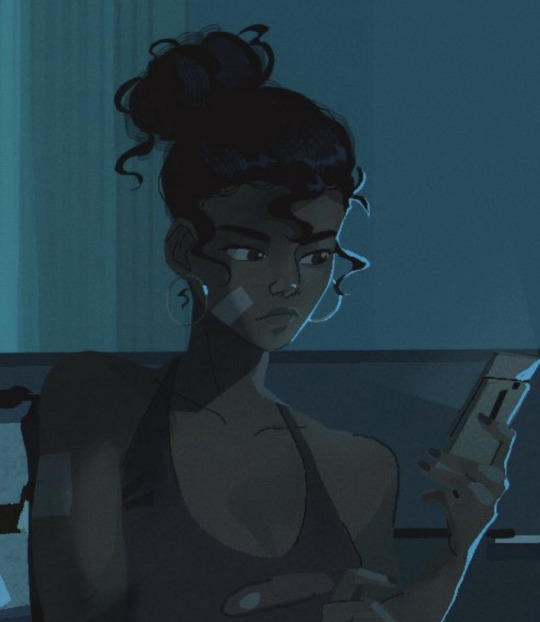

Emilia Ocasio - Prime age: 25-38. Current age: 42. Poten type: Manipulate- Uses raw energy manifestations to fight. Core color - Blue
TPP squad's charismatic and talented leader. She's lively and pretty darn spunky, Emilia takes what she does with a lot of heart and cares about her family, friends and the city she grew up in. Though it puts the weight of the world on her shoulder. She can be a hot-headed sometimes she figuring out what it means to be a good leader among many aspects of her adult life. Currently she's playing the worlds hardest game of Carmen sandiago
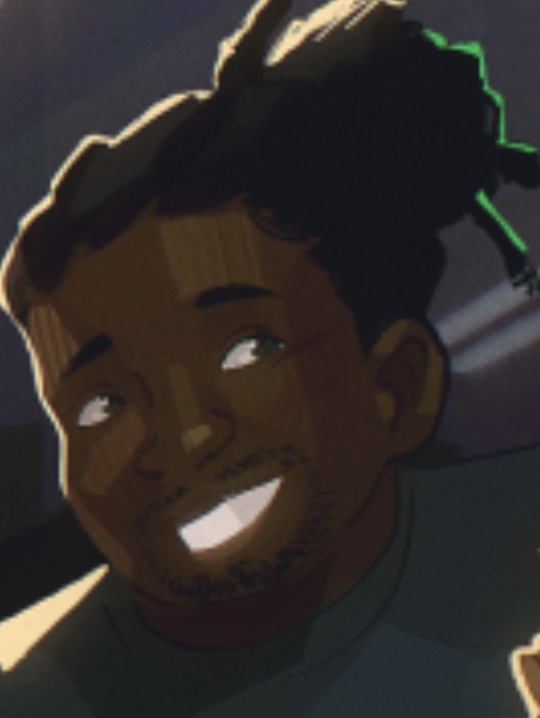
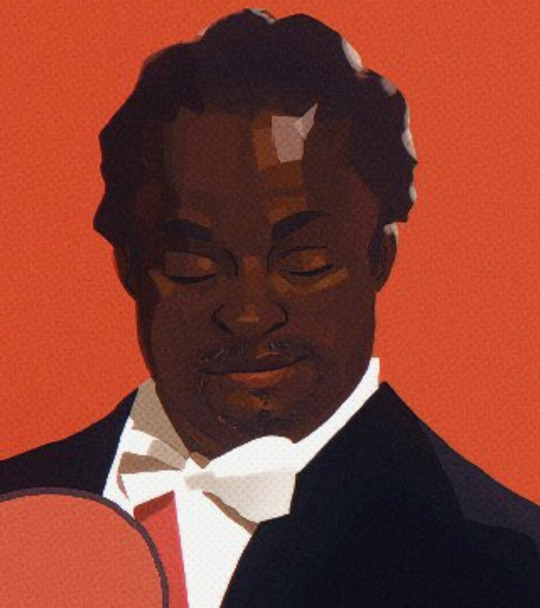
Jaylen (Jay) D. Franklin - Prime age: 28-41. Current age: 45. Poten type: Manipulate- produces powerful energy shock waves. Core color - Green
Jay was the second in command and the easiest dude to get along with. He's a close family friend and close friend to Emilia since she was young (He dated her sister but it didn't work out lol) So she's like a little sister to him. After the team disbanded he opened a record store that the go-to place for many people. He's happy to tell the stories from his past to the kids but does his best to stay out of hunting business to protect him and and his family.
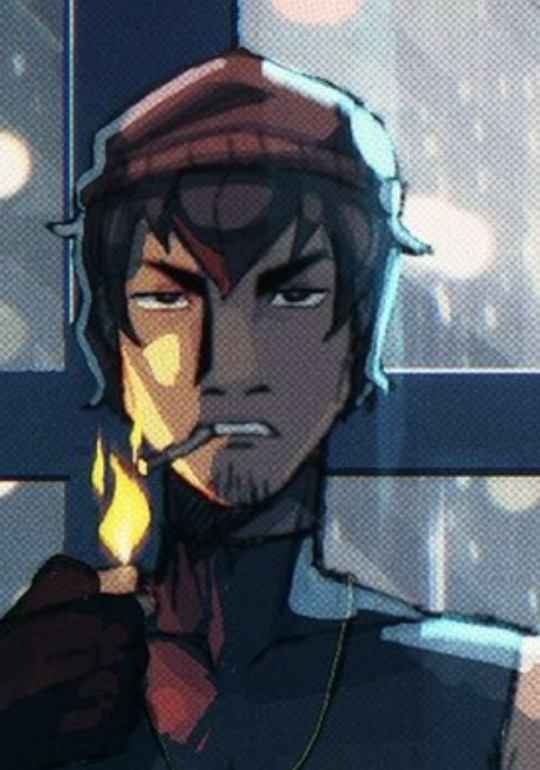

Gadiel Marques - Prime age: 26-39. Current age: 43. Poten type: Elemental- Fire. Core color - yellow
Team pretty boy who use to have gorgeous long hair (sorry not picture ;.;) , now is a humble family convince store owner in of Center city who has a confusing but cozy sense of fashion. He can be a little eccentric at times but is pretty laid-back, sarcastic, and pragmatic when it warrants it.


Charlotte (Lottie) Rockwall - Prime age: 22-35. Current age: 39. Poten type: Materialize- gun blaster. Core Color - "Chartreuse"
Lottie is a real cutie with a Atlanta accent. team's weapon specialist and sharpshooter. will not hesitant to sprint after you in high heels. Currently she's a well traveled and fashion critic writing blogs and making videos. You might see her riding down the street on her green moped.


Eira Drake - Prime age: 25-38. Current age: 42. Poten type: Ice. Core color - blue (like an icy blue)
Hot, brooding one with a cool sports motorcycle. Eira tends to keep to herself and needed a chance to warm up to Emilia because she didn't quite trust her as leader yet. But Eira is Emilia worth rival as they have many similar skills. since the over saturation Eira's hair began to turn icy white as a strange side effect. Currently Eira works as a hired gun and is working a very weird job at the moment of watching over this rich guys son named Blake who likes to call her Elsa. Pays a lot of money. Eira also has a crazy romance going on with a chemistry teacher named Ellie who is much more than she seems.
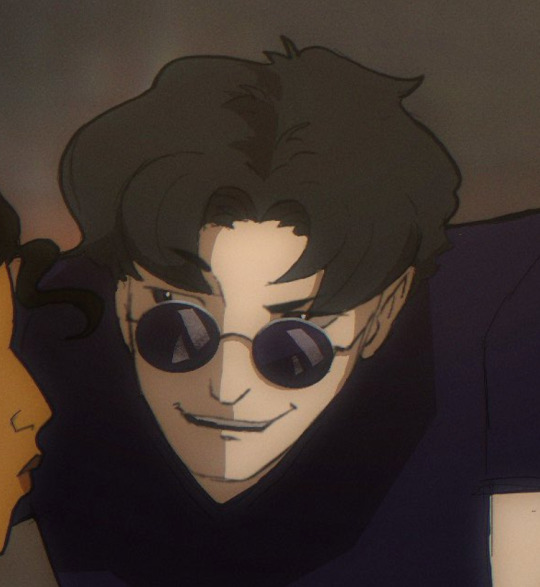
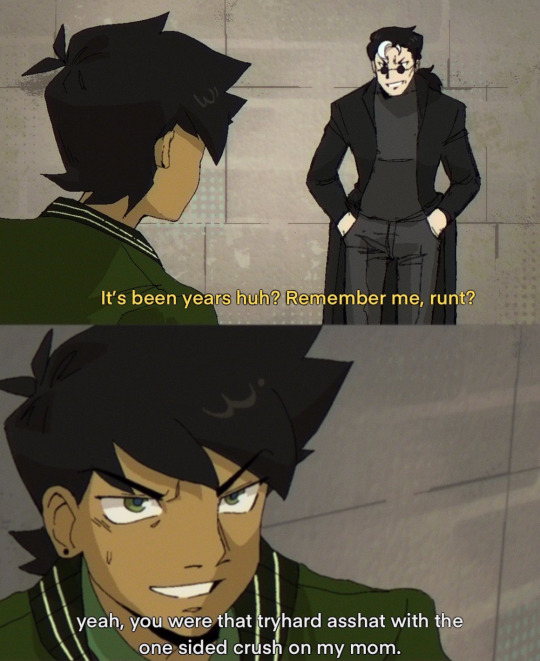
Damien Lee - Prime age: 23-36. Current age: 40. Poten type: Materialize- Bow staff. Core color- Red
An asshole who has a huge crush on Emilia lol. wears those glasses because he thinks it makes him look cool. despite that he is very good at getting his hands on information. The stress from the over saturation gave him a white streak in his hair. not as cool as Eira tho lol. Since the team disbanded he's been difficult to contact. Apparently his been doing some black market unnatural trade, commiting heist etc etc with his own band of cronies. He gets caught sneaking into the Union Institute by Nick but makes a deal with him to get classified Info about the original tpp from UHA in exchange for not getting arrested.
#the poten project#tpp story time#tpp:prime#character bios#my ocs#disclaimer: lucas wasnt born when she was 25 thats just when the story starts it spans several years lmao
23 notes
·
View notes
Text
Taiwan FAQ [Updated 2024/5/26]
[See the 5/28 updated here]

[Photo credit CNA/Taiwan News]
[Image ID: A large crowd of Taiwanese protestors, many holding signs in Chinese displaying their criticism of current legislative goings on. Rather than focusing on individuals, the photo focuses on the size of the crowd. The crowd fills a wide avenue and disappears into the horizon. There are hundreds, perhaps thousands, of people pictured. /. End ID]
As Taiwan continues to strive to protect its autonomy and democracy, it is my goal to spread accurate, firsthand information about its current events worldwide with the aid of reblogs from people who also support democracy.
Here is a list I’ve compiled of basic questions and answers, and more importantly, further reading to help worldwide English speakers to understand Taiwan’s history and current situation.
One of the biggest weapons the PRC (China) is currently using right now is misinformation meant to confuse international audiences and deter support of Taiwan (ROC). I find it INCREDIBLY important that we start doing all we can to fight that.
FAQs
Acronyms/political parties explained (PRC/ROC/KMT/TPP/DPP)
How new is democracy in Taiwan?
Is Taiwan a part of China?/Does China control Taiwan?
Is Taiwan recognized internationally?
What was the Wild Lily Movement?
What was the Sunflower Movement?
What is the Bluebird Movement? / What is going on right now? / What are the details of the legislative reforms the KMT/TPP are trying to pass?
Why does the Bluebird Movement matter so much?
What is the Legislative Yuan?
Important names to know in the LY
Can the president veto these reforms?
Is the Bluebird Movement focused on China’s recent military actions?
What has China been doing militarily in recent years?
What did President Lai recently say to provoke China?
Is it illegal for foreigners to protest in Taiwan?
Should foreigners protest in Taiwan?
How to use Chinese-language resources as an English-speaker/Keywords to search in order to do so
What can I do to support Taiwan from abroad?
Further Resources
Talk from 5/25 on the current situation
Politics of Taiwan on Wikipedia (Government of the Republic of China on Wikipedia)
Post-WWII History of Taiwan on Wikipedia
Cross-Strait Relations on Wikipedia
Brian Hioe, journalist on Twitter (New Bloom Magazine)
Aurora Chang, activist on Twitter
Erin Hale on Twitter
James Hsieh on Twitter (Chinese-language)
Autum Huang on Twitter (Chinese-language)
It’s important to note that a lot of recent mobilization has been happening on Threads but I am not active there
Taiwan Plus (English news)
Taiwan News (English news)
CNA Focus Taiwan (English news)
TVBS World Taiwan (English news)
When reading global news media about current events in Taiwan, I urge you to look into an article/tweet’s author, their country of origin, and where they are based
Here’s the Taiwan tag on my blog
38 notes
·
View notes
Text
A shout out to @thistuesdaynight for the sweetest tags on their re-blog. Seriously, made my morning. :)

OMG the pressure is on! I desperately hope to do these characters justice. I love them all. Severus, bless his heart, is clever and creative but he just can't let himself love. Regulus, who Sirius always saw as weak and in need of protection is actually a BAMF. And Lily, the muggle-born who is drawn to these two Slytherins... She is also a BAMF. The three of them mirror the Golden Trio, but are also SOOOOO different.
Ahh!!! Severus' story kicks off their friendship but it continues, through every installment which features one of their POV. I really haven't read much fanfiction (in the grand scheme of how much exists), but I have not seen these three in a close friendship dynamic before. I'm sure it exists. And there is a finesse to writing it accurately (IMO). All three of them are unique. Severus and Regulus have some social quirks. They may mirror the Golden Trio in gender, but their dynamic is so different. Blame it on the Slytherins. Blame it on Lily's personality (which is reminiscent of Hermione but certainly not a clone). I hope people find themselves seeing each of these characters in a new light. And it is all done in the canonesque setting of the magical world. Creative liberties have been taken to capitalize on the awesomeness of Lily and Regulus' magical abilities. But I think it works.
So The Prince's Pact, Severus' POV and installment two in my series, will start posting chapters DAILY on December 21 on AO3. I am super excited!
Installment one is up now. The Heir and The Spare, Sirius' POV. And if you aren't into Sirius' POV, you can read the summary of that work before diving into installment number two. The most plot critical things from THATS are the Prologue, the Interlude, and the Epilogue (and none of them are Sirius' POV)! The rest of the story is first year Marauders shenanigans, with subtextual Wolfstar and Black brother angst. Though Lily plays a neat role and I love her feisty attitude towards the arrogant pureblood boys (looking at you James and Sirius).
I'm excited and also nervous to post TPP. Mostly because (as you saw in the tag image) apparently it takes bravery to write these three... TOGETHER. What have I gotten myself into? I appreciate all the support from people who (like me) can get on board with this concept. I think it works beautifully. And it is absolutely a plot critical dynamic which carries through my whole series.
#our love is written in the stars#marauders era#regulus black#dead gay wizards from the 70s#severus snape#lily evans#bamf lily evans#bamf regulus black#ao3 author#ao3 writer#archive of our own#severus pov#regulus arcturus black#pro severus snape#pro lily evans#severus and regulus and lily#severus and regulus#regulus and lily#severus and lily
8 notes
·
View notes